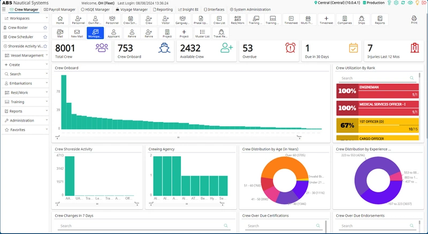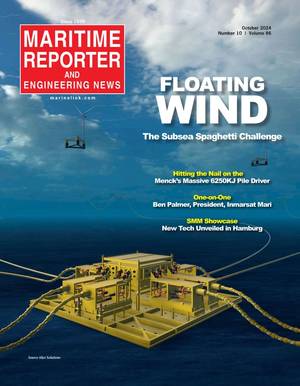Report: Five Digitalization Steps that can Drive OSV Fuel Efficiency
A new white paper published by maritime performance management company Opsealog sets out five practical steps that OSV operators can take to secure improvements in fuel efficiency through better data analytics.
Existing data that companies are already collecting, for example in mandatory logbooks, can enable significant vessel and fleet efficiency gains, says Opsealog.
With case studies drawn from Opsealog’s eight years of experience across the world’s offshore markets, the research highlights how having detailed digital monitoring in place helps owners, fleet managers and captains gain insights on how to improve efficiency, reduce carbon footprint, and control operational costs.
The report reveals how having a digital foundation, rather than relying on manual systems, enabled ADNOC Logistics & Services to achieve a 12% reduction in fuel consumption and emissions. As part of the project Opsealog collected and analysed data on standby practices and found that there was potential for the installation of mooring buoys close to platforms and rigs. ADNOC L&S then commissioned the mooring buoys and encouraged increased anchor utilisation where possible. This decreased vessels’ use of dynamic positioning, and, in turn, fuel consumption without compromising safety or delaying operations.
Brunei Shell Petroleum (BSP) obtained a 10% gain in fuel efficiency after replacing manual processes and spreadsheets with the tools to simplify data entry and automatically generate noon and other reports, such as waste management, product inventory, health and safety, and engine running hours. A detailed picture of the fleet’s activities on dashboards, and expert analysis delivered in weekly recommendations to the vessels and shoreside fleet management, enabled new fuel efficiency strategies to be developed, implemented and monitored.
The Opsealog report outlines five steps operators can use to secure improvements in fuel efficiency through digitalization:
• Map the existing data environment to identify any limitations and assess what improvements can be achieved with the data already available.
• Understand the data analysis process and the importance of human oversight.
• Identify clear goals for greater efficiency, with specific KPIs to measure progress.
• Ensure that the deployment of digital solutions is a collaborative process, as getting the digital transition right is as much about organisational and cultural changes as it is about technology.
• Manage ongoing change, as regulation and data processes continue to evolve throughout the energy transition.
Having a good data architecture enables operators to streamline regulatory reporting and gives them a basis for developing the solutions that will be required in the future for emissions trading and carbon pricing systems that are being adopted regionally and globally, says Opsealog.
Arnaud Dianoux, Managing Director of Opsealog, said: “This new report shows that good data management is not just a ‘nice to have’ but a necessity for the offshore sector. It will be essential to enable companies to remain competitive, especially at a time when regulatory and market forces are driving the industry to slash greenhouse gas emissions and extend the lifetime of vessels.
“There is a fortunate correlation between fuel efficiency and GHG emissions reductions, which allows charterers’ commercial ambitions to align with wider environmental concerns. Therefore, it is a highly practical, common-sense approach to make better use of the data assets that in many cases already exist, in order to improve operational performance. This also helps companies prepare for the regulation ahead and enables them to progress with confidence.”














